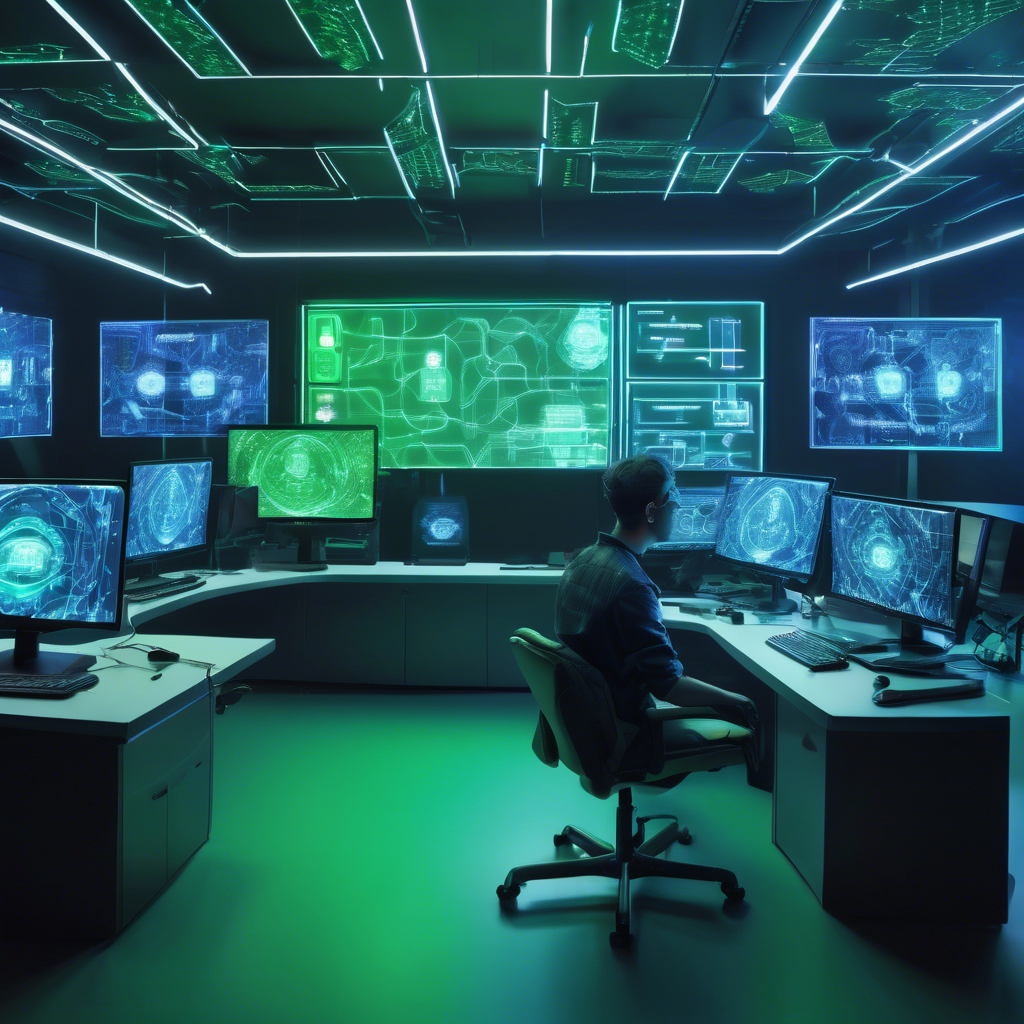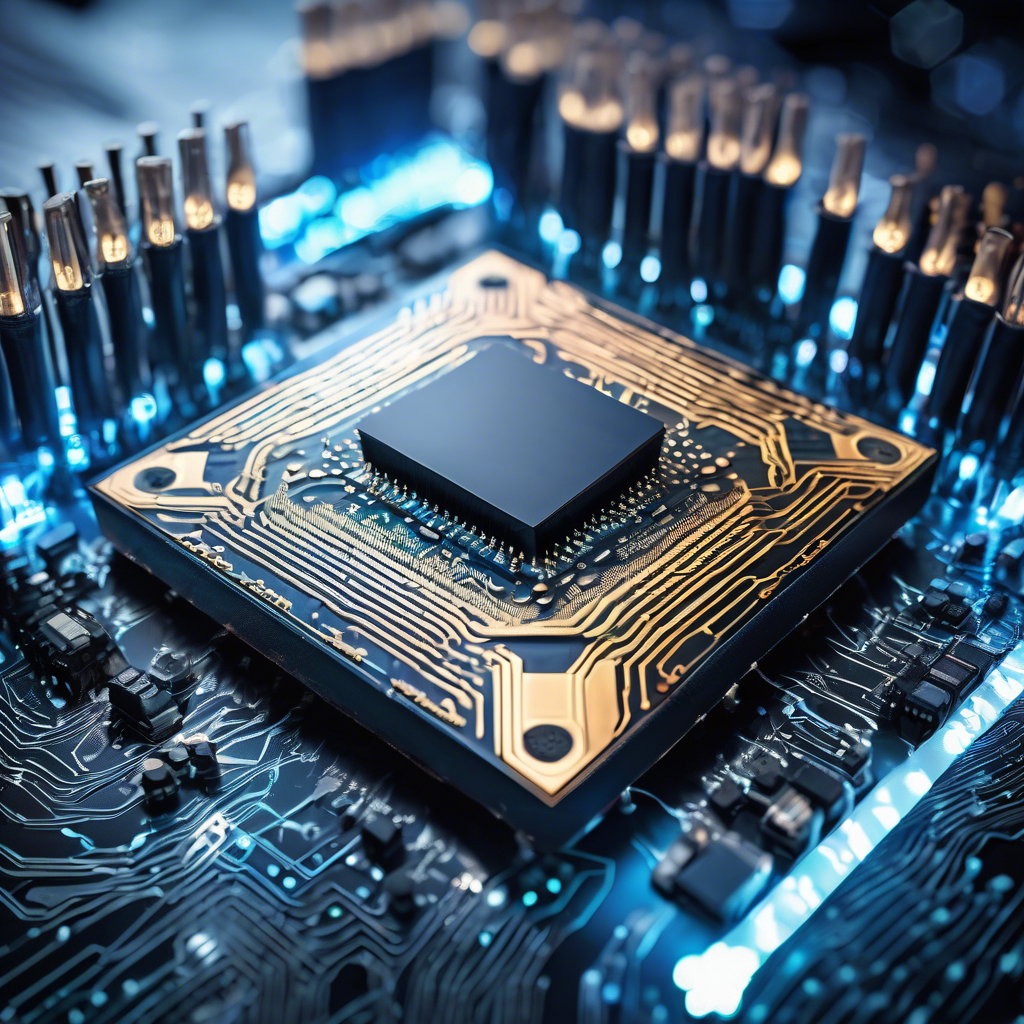OpenAI CEO Sam Altman and Tech Leaders Testify on AI Future and U.S. Competitiveness Before Congress

WASHINGTON (AP) — OpenAI CEO Sam Altman, along with executives from Microsoft and semiconductor maker Advanced Micro Devices (AMD), testified before Congress about the vast opportunities, risks, and needs facing the artificial intelligence (AI) industry—an area both lawmakers and technologists see as capable of fundamentally transforming global business, culture, and geopolitics. The hearing occurs amid intensifying competition between companies and nations to lead the future of AI. Altman’s OpenAI is aggressively developing advanced AI models, competing against rivals like Alphabet, Meta, and Chinese firms. Altman opened by emphasizing AI’s massive transformative potential, stating, “I believe this will be at least as big as the internet, maybe bigger, ” and underscored the critical need for investment in infrastructure. He called on senators to support the “dual revolutions” of AI and energy production that he believes will positively reshape the world. Testifying alongside Altman were Lisa Su, AMD’s CEO; Michael Intrator, co-founder of AI cloud startup CoreWeave; and Brad Smith, Microsoft’s vice chair and president. Together, they urged lawmakers to simplify policies governing AI initiatives and funding. The discussion covered topics from chip performance, employment, and human interactions to broader strategic concerns like global competition with China and the European Union. Sen. Ted Cruz, chair of the Senate Commerce, Science and Transportation Committee, highlighted China’s goal to lead AI by 2030, framing a critical choice for the U. S. : to uphold its entrepreneurial and innovative principles or adopt Europe-like command-and-control policies. Across party lines, senators expressed sober concern over maintaining U. S. AI dominance, raising issues of cybersecurity, privacy, and the risks of AI-generated misleading content. However, some partisan tensions appeared. Sen. Bernie Moreno (R-Ohio) challenged Su and Smith on whether current sustainable energy policies under the Biden administration hinder the expansion of AI-related power infrastructure. Conversely, Sen. Tammy Duckworth (D-Illinois) criticized previous cuts by former President Trump and Elon Musk to federal research funding and agencies like the Energy Department’s national labs and the NSF, calling such actions “self sabotaging. ” Duckworth questioned whether such reductions would have imperiled key projects, such as those that created the internet. Despite occasional sharp exchanges, the hearing maintained a respectful and somewhat light tone, with bipartisan acknowledgment of AI’s pivotal role in humanity’s future. Sen. Brian Schatz (D-Hawaii) highlighted that the race for AI leadership isn’t just commercial but revolves around ensuring American values prevail globally. Regarding trade policy, executives cautioned against restrictive U. S.
export controls that might drive the world toward adopting China’s AI technologies. Lisa Su emphasized the industry’s recognition of national security but warned that overly limiting U. S. technology abroad would open the door for less advanced alternatives to mature and gain traction. Altman linked the nation’s ability to attract talent and export products globally to national security and influence, noting the huge impact of popular U. S. -developed infrastructure like iPhones and Google, and advocating for widespread global adoption of the U. S. technology stack. Trade tensions have weighed heavily on the AI sector—particularly for chipmakers like Nvidia and AMD. The Trump administration imposed restrictions last April banning sales of Nvidia’s H200 GPUs and AMD’s MI300 chips to China, costing Nvidia an estimated $5. 5 billion and AMD approximately $1. 5 billion in forthcoming revenues. Additional Biden-era AI chip controls targeting over 100 countries, including U. S. allies and aiming to block China’s sophisticated chip smuggling, were poised to take effect but faced mixed industry reactions. The Commerce Department indicated plans to replace Biden’s “overly complex” regulations with simpler rules, though timing remains unclear. On AI data infrastructure, Altman recently visited the Abilene, Texas site for OpenAI’s Stargate data center, built in partnership with Oracle. The site was selected for abundant energy options including wind and solar power. During testimony, Altman praised Texas for its supportive incentives for AI projects and predicted Abilene would become the world’s “largest AI training facility. ” At the same time, he warned against inconsistent regulations across states, calling for a unified, “light touch” federal framework to enable speed and clarity necessary for the moment. While data centers have long supported cloud services, emerging AI technologies require far greater computational power to create and run advanced applications like chatbots and generative tools. A Department of Energy report last year found that electricity consumption by U. S. data centers has tripled over the past decade and could double or triple again by 2028—potentially using up to 12% of the nation’s electricity. AP Technology Writer Matt O’Brien contributed from Providence, Rhode Island.
Brief news summary
OpenAI CEO Sam Altman, along with leaders from Microsoft and AMD, testified before Capitol Hill about AI’s profound impact on business, culture, and geopolitics, comparing it to the internet revolution. Altman emphasized the need for greater investment in infrastructure and streamlined federal policies to drive innovation. Lawmakers from both parties expressed concerns about maintaining U.S. leadership amid global competition, particularly from China, while addressing cybersecurity, data privacy, and societal challenges. Industry leaders warned that export controls on AI chips could inadvertently accelerate China's AI progress. Altman praised Texas’s support for AI, highlighting the Abilene Stargate data center as a key training hub, and urged unified federal regulations to avoid a patchwork of state laws. The hearing also covered AI data centers' growing energy demands, projected to consume up to 12% of U.S. electricity by 2028, highlighting the need for sustainable energy solutions alongside AI expansion.
AI-powered Lead Generation in Social Media
and Search Engines
Let AI take control and automatically generate leads for you!

I'm your Content Manager, ready to handle your first test assignment
Learn how AI can help your business.
Let’s talk!

Google's AI Tool Generates Convincing Deepfakes, …
Google recently launched Veo 3, an advanced AI video generation tool capable of producing hyper-realistic deepfake videos.

Blockchain: Bold Vision, Overhyped Dream
I recently discussed Pakistan’s emerging role in the crypto space with Raza Rumi on Naya Daur TV.

Broadcom Releases New Networking Chip to Support …
Broadcom has unveiled its newest networking chip, the Tomahawk 6, created to address the growing demands of artificial intelligence (AI) infrastructure.

Tether Launches Omnichain Gold Token ‘XAUt0’ On T…
Tether has teamed up with the TON Foundation to introduce XAUt0, an omnichain version of its gold-backed stablecoin XAUt, aiming to expand digital gold access across multiple blockchains.

AI-Powered Drug Discovery: A Game Changer in Phar…
Artificial intelligence (AI) is transforming the pharmaceutical industry by greatly improving the drug discovery process.

La tokenización inmobiliaria llega a Arabia Saudí
Rafal Real Estate, una empresa destacada en el sector inmobiliario, ha firmado un acuerdo pionero con la empresa estadounidense droppRWA para implementar la tokenización de activos inmobiliarios en Arabia Saudí.

AI in Education: Personalized Learning Experience…
Artificial intelligence (AI) is rapidly reshaping education by offering highly personalized learning experiences tailored to each student's unique needs.

 Auto-Filling SEO Website as a Gift
Auto-Filling SEO Website as a Gift








 Auto-Filling SEO Website as a Gift
Auto-Filling SEO Website as a Gift

